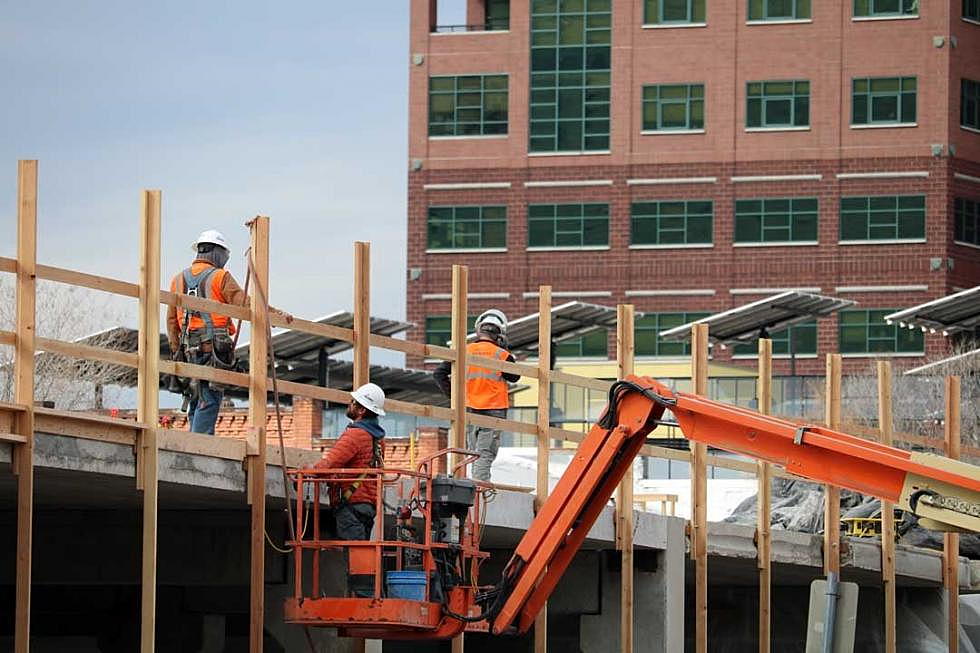
Missoula building boom results in tax decrease; city budget unchanged
The building boom playing out across Missoula the past few years has finally showed up on the tax rolls at the Montana Department of Revenue, essentially eliminating the city's need to raise taxes to cover this year's budget.
In fact, Missoula Mayor John Engen said on Wednesday, the owner of a $250,000 home in Missoula will actually see the city's portion of their property tax bill decrease by $7.30 a year.
“We received our taxable values from the DOR on Friday and the news was good,” Engen told the Budget Committee of the Whole. “Record development is finally starting to show up on the tax rolls, and this year, we have an expanded tax base.”
Last year's taxable values, reported annually by the DOR, came in far less than city leaders had anticipated given the uptick in building. That required last-minute adjustments to the city budget, which saw taxes go up roughly 3.8 percent.
But the building boom has finally started to clear the delay that spans new construction to listing as taxable property, and it has buoyed the city's tax base.
Encouraged by the growth, Engen urged the City Council to leave this year's budget as adopted, which it intends to do. The presence of a wider tax base will eliminate the 3.4 percent tax increase envisioned just two weeks ago.
“Over the course of the last most memorable years, we've had struggles finding new revenues and have raised taxes,” Engen said. “But in this case, we actually have new revenue. The budget will not require a tax increase this year, but will actually lower taxes slightly in the city of Missoula because of that growing tax base.”
While city taxes will go down this year, new items included in this year's $153 million budget will remain. That includes increases in wages and health insurance premiums for city employees and two new Missoula Police Department employees to patrol parks and trails.
It also includes several million dollars in new road improvements and two new positions within Development Services, including permitting and planning.
“Because of all the development we're seeing around town, they really needed help,” Bickell said, recapping this year's budget. “There's two FTEs to help with the permitting aspects and to make sure we're maintaining our timelines, and we've added an additional planner to help with our long-range planning efforts.”
It's those planning efforts, coupled with growth and development, that attributed to this year's tax decrease, Engen said. Last year, the city set a new development record by issuing $245 million in building permits, and it's set to surpass that record again this year.
Over the first half of 2017, the city has issued building permits holding a construction value of $131 million. At this time last year, it was at $108 million.
It often takes two or three years for new construction to show up as taxable property at the DOR. When it does, the city benefits by gaining access to new revenue. In this year's case, that takes the pressure off city taxpayers.
“The good news is, we don't imagine this will be the last time we'll be able to report that we've had a good year,” Engen said. “We're not realizing all the new growth yet, and we'll be able to realize an expanding tax base for at least the foreseeable future.”
Of the city's $153 million budget, $60 million goes to the general fund. Within that, roughly 51 percent funds public safety, 16 percent general government, 15 percent public works and 8 percent supports culture and recreation.
The city's general fund represents the single largest expenditure and half of it, or nearly $30 million, is supported by taxes and assessments.
“When you all approved this budget, we made difficult and responsible decisions and pay as we go,” Engen said. “What I'm recommending to you is the budget you approved stay intact, and we move forward with a slight reduction in taxes this year.
“We're going to cut their tax bill a little bit on the city side of the ledger.”
